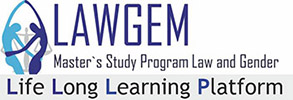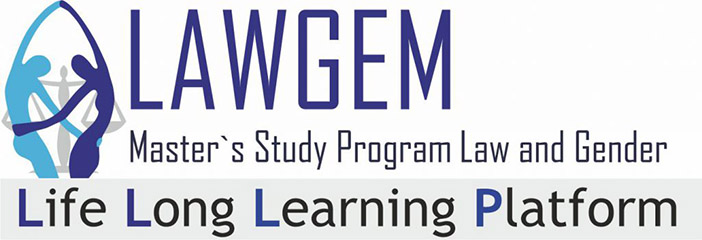Faculty of Law University of Belgrade in the cooperation with the OSCE Mission to Serbia organized the Spring School/Pilot Master – Law and Gender. This Spring School was based on the project LAWGEM and served as a kind of the pilot practicing of the future master`s study program Law and Gender. It covered all courses contained in this master`s study program curriculum, and the reading materials consisted to a great extent of the books published within the LAWGEM project. The School was organized in a hybrid form – in person at the Faculty of Law University of Belgrade and online, with 69 participants (students of undergraduate, master and PhD level), both from Serbia and other countries around the world (Albania, Belarus, Bosnia and Herzegovina, Brazil, China, Croatia, France, Germany, India, Iran, Italy, Montenegro, Russia and Vietnam). It is certain that participants of this School have gained valuable knowledge which will help them on their academic path and in their professional careers. On the other hand, the Spring School represented an excellent preparation of lectures and pedagogic experiences of the scholars from the University of Belgrade Faculty of Law for the future conducting the master’s study program Law and Gender.
Mandatory course on Human Rights Law – Gender Perspective included three lectures held by Full Professor Dr. Ivana Krstić, Full Professor Dr. Tanasije Marinković, and Associated Professor Dr. Bojana Čučković. These lectures included topics of Civil and Political Rights, Gender-based Discrimination, and Gender Dimensions of Contemporary Forms of Slavery and Trafficking in Persons. Professor Dr. Marinković introduced different civil and political rights with a special focus on women’s rights within international and European protection of human rights. Furthermore, Professor Dr. Krstić introduced definitions of gender-based violence, discrimination, and different forms of discrimination. During the lecture, participants were actively engaged in discussions on domestic violence, the influence of intersectionality and discussed the root causes of human trafficking among women and girls. Professor Dr. Krstic explained that domestic violence is recognized as discrimination against women within the international human rights law, as well as that discrimination is present within migration regimes and humanitarian emergencies, and it contributes to risks of human trafficking which is contributing to inequalities within society. After this, participants were introduced to the topic of contemporary forms of slavery and human trafficking by Professor Dr. Čučković. Namely, the Professor introduced international documents related to slavery and human trafficking and regional documents within the Council of Europe. Professor also presented positive obligations of states with regard to human trafficking which were developed through the jurisprudence of the European Court of Human Rights. Participants had a chance to discuss the causes of human trafficking and to discuss the implementation of gender-sensitive policies and procedures which would provide protection to women and girls. Professor Dr. Čučković concluded that human trafficking is recognized as gender-based violence and rooted in gender-based discrimination. In the end, Professor Čučković emphasized the importance of further evolution of ECtHR jurisprudence to include gender-related positive obligations to states.
Human Rights Law – Gender Persp. 1: Taking Gender Equality Seriously – Civil and Political Rights Law
Human Rights Law – Gender Persp.2: Gender Dimensions of Contemporary Forms of Slavery and Trafficking

